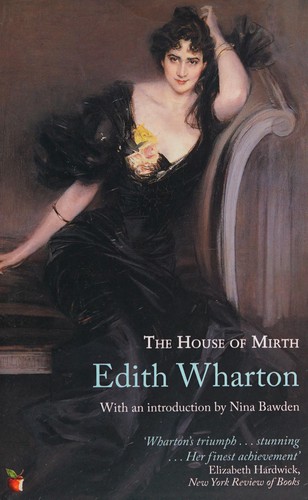Lulu/ Lucien ha recensito House of Mirth di Edith Wharton
Second novel by Edith Wharton which propelled her among American authors
5 stelle
Lily Bart, about 29 at the start of the novel, had been orphaned a few years prior, and raised by Julia Peniston, her aunt. Lily is accepted in New York City High Society of Nouveaux-Riches, and courted by several men, whom she refuses to marry, not wishing to settle with any one of them, in her yearning to be free of societal pressures, conventions and expected Rôle.
In this novel, Wharton depicts a complex woman, at the turn of the last century, around 1899-1900, who is torn between her wishes for independent, luxurious lifestyle in the Higher Classes, and societal pressures and expectations for her to marry a rich man to secure her positions, both financially and socially. Lily uses her charms – she is depicted a stunning beauty – but refuses marriage proposals.
In her attempt to safeguard the reputation of a person for whom she has …
Lily Bart, about 29 at the start of the novel, had been orphaned a few years prior, and raised by Julia Peniston, her aunt. Lily is accepted in New York City High Society of Nouveaux-Riches, and courted by several men, whom she refuses to marry, not wishing to settle with any one of them, in her yearning to be free of societal pressures, conventions and expected Rôle.
In this novel, Wharton depicts a complex woman, at the turn of the last century, around 1899-1900, who is torn between her wishes for independent, luxurious lifestyle in the Higher Classes, and societal pressures and expectations for her to marry a rich man to secure her positions, both financially and socially. Lily uses her charms – she is depicted a stunning beauty – but refuses marriage proposals.
In her attempt to safeguard the reputation of a person for whom she has very complicated feelings, she lets ill-founded rumors run against her, finding herself gradually excluded from her Milieu, and experiences the pangs of want, isolation, loneliness, and, though not named but vividly described, depression.
The assumption that the story takes place around 1899-1900 is based on a line in the first chapter, about Grand Central Station, the name of the railroad terminal in NYC given in that period, as it was previously called Grand Central Depot.
Edith Wharton’s novel criticizes the Upper Class, its disdain towards lower classes and its moral double-standards.
I enjoyed the fluid narrative in the omniscient third-person style, limiting dialogues to bare minimum exchanges in key moments. The 29 chapters comprised in its “two books”, or “two periods” in Lily’s life, flow naturally from one to the other, with mini-cliffhanger in some but not all of the shifts between chapters. Wharton uses clever, witty and often poetic wording and phrases, often giving ironic, humorous and dramatic effects to her descriptions, much like the three main communication devises her heroine Lily Bart uses with everyone around her.
I appreciated her characterization and complexity for the persons involved; and the unexpected turns of events in their lives.
The book was at first serialized in Scribner’s Magazine, beginning in January 1905 and had a rapid success – in fact, the highest that Magazine had had before. The House of Mirth was published as a novel on 14th of October 1905 and would later be adapted to a play by Edith Wharton herself, with Clyde Fitch, in 1906 ; a silent film in 1918, under the title La Maison du Brouillard (= The House of Fog), directed by Albert Capellani, featuring Katherine Harris Barrymore as Lily Bart.
It was then presented on radio’s Theatre Guild on the Air, in 1952, starring Joan Fontaine and Franchot Tone ; an episode of Martinee Theatre in 1956 and directed by John Drew Barrymore ; A tv-movie for PBS in 1981, directed by Adrian Hall and starred Geraldine Chaplin ; again into a play in 1995, adapted by Dawn Keele, and a last movie in 2000, directed by Terence Davies, featuring Gillian Anderson as Lily Bart.
The House of Mirth was Wharton’s second full-length novel and ensured her reputation as a major novelist and I can understand the influence she had on American authors.

